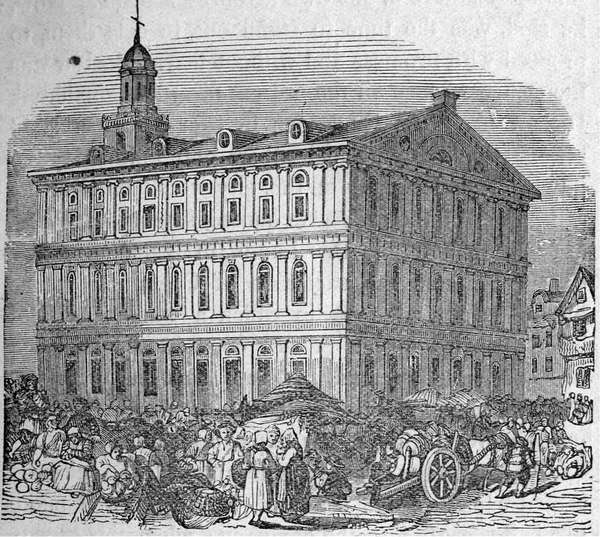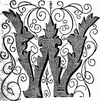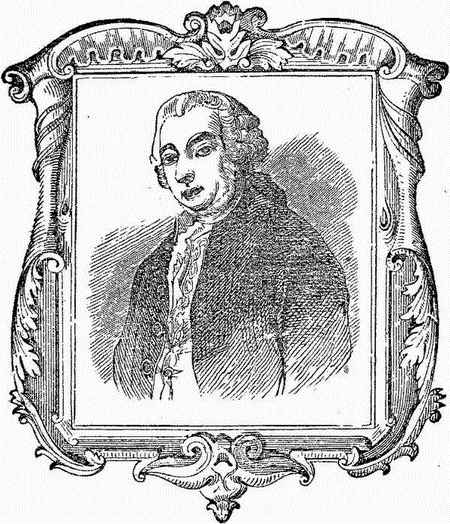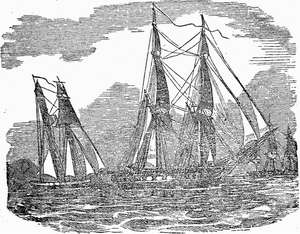Thrilling Incidents In American History
• Preface
Revolutionary War
• Opening Of The Revolution
• The Boston Massacre
• Affair of the Sloop Liberty
• Affair of the Gaspee
• The Tea Riot
• The Boston Port Bill
• The First Continental Congress-Consequent Parliamentary proceedings
• Organization of the Minute-Men
• Patrick Henry-Second Provincial Congress-First Military Enterprise
• Battles of Lexington and Concord
• Battle of Bunker's Hill
• Capture of Ticonderoga
• Second Continental Congress-Washington's Appointment
• Siege of Boston
• Incidents at the Evacuation of Boston
• Burning of Falmouth
• Arnold's Expedition to Quebec
• Siege of Quebec, and Death of Montgomery
• Scenes at Quebec during the Siege
• Expedition against Charleston
• The Declaration of Independence
• The Battle of Long Island
• Washington's Retreat through New Jersey-Capture of General Lee
• Battle of Trenton
• Battle of Princeton
• Capture of General Prescott
• Battle of Brandywine
• Battle of Germantown
• Battle of Red-Bank
• Attack on Fort Mifflin-Retirement of the Army to Valley Forge
• Battle of Bennington
• Murder of Miss M'Crea
• Battle of Stillwater
• Battle of Bemis' Heights, and Retreat of Burgoyne
• Capture of Forts Clinton and Montgomery
• Surrender of Burgoyne
• The Treaty with France
• Attack on Savannah, and Death of Pulaski
• Storming of Stony Point
• General Sullivan's Campaign against the Mohawks
• Tarleton's Quarters
• Battle of Camden, and Death of De Kalb
• Arnold's Treason
• The Loss of the Randolph
• The British Prison-Ships
• Capture of the Serapis
• Putnam's Feat at Horseneck
• Battle of Eutaw Springs
• Wayne's Charge at Green Spring
• Capture of the General Monk
• The Mutinies
• Battle of the Cowpens
• Capture of New London
• Massacre of Wyoming
• Surrender of Cornwallis
War With France
• Capture of L'Insurgente
• The Constellation and Vengeance
War With Tripoli
• Burning of the Philadelphia
• Bombardment of Tripoli
• Loss of the Intrepid
• Expedition of General Eaton
Second War With England
• Battle of Tippecanoe
• Capture of the Guerriere
• Tragical Affair of an Indian Chief
• Battle and Massacre at the River Raisin
• Captain Holmes's Expedition
• Capture of the Caledonia and Detroit
• The Wasp and Frolic
• Gallant Conduct of Lieutenant Allen at the Capture of the Macedonian
• Capture and Destruction of the Java
• Siege of Fort Meigs
• Capture of York, and Death of General Pike
• Defence of Sackett's Harbour
• Defence of Fort Stephenson
• Battle of Lake Erie
• Battle of the Thames
• Gallant Action of Commodore Chauncey under the guns of Kingston Citadel
• The Sacking of Hampton
• Capture of the Peacock
• Massacre at Fort Mimms
• Surrender of Weatherford
• Battle of Niagara
• BattIe of New Orleans
War With Mexico
• Battle of Palo Alto
• Battle of Resaca de la Palma
• Capture of Monterey
• Battle in the Streets of Monterey
• Thrilling Scenes in the Battle of Buena Vista
• Bombardment of Vera Cruz
• Battle of Cerro Gordo
• Battles of Contreras and Churubusco
• Storming of Chapultepec


Fanueil Hall
THE BOSTON PORT BILL
 HEN intelligence of so flagrant an outrage as the destruction of government
stores by a lawless mob reached Parliament, measures of extreme severity were
immediately adopted. These were not akin to
Lord North's disposition; but he was probably goaded on by others, reproached
for his previous concessions, and keenly sensible to
this total failure of his own favourite scheme. Now, he said, was the time to
stand out, to defy them, to proceed with firmness and without fear. Boston was
the centre whence all the present disorders emanated. It had been the ringleader
in every riot, and set always the example which others only followed. To inflict
a signal penalty on this city would be to strike at the root of the evil. He
quoted several instances, as the murder of Dr. Lamb in London, under Charles
II., and the execution of Captain Porteous by the Edinburgh mob, in which a
whole city had been punished for an offence committed by a large body of its
inhabitants. It was proposed, therefore, that the port of Boston should be
closed, and no goods allowed to be either shipped or landed.
HEN intelligence of so flagrant an outrage as the destruction of government
stores by a lawless mob reached Parliament, measures of extreme severity were
immediately adopted. These were not akin to
Lord North's disposition; but he was probably goaded on by others, reproached
for his previous concessions, and keenly sensible to
this total failure of his own favourite scheme. Now, he said, was the time to
stand out, to defy them, to proceed with firmness and without fear. Boston was
the centre whence all the present disorders emanated. It had been the ringleader
in every riot, and set always the example which others only followed. To inflict
a signal penalty on this city would be to strike at the root of the evil. He
quoted several instances, as the murder of Dr. Lamb in London, under Charles
II., and the execution of Captain Porteous by the Edinburgh mob, in which a
whole city had been punished for an offence committed by a large body of its
inhabitants. It was proposed, therefore, that the port of Boston should be
closed, and no goods allowed to be either shipped or landed.
|
This interdict was to continue till the citizens should express a due sense of their error, and make full compensation to the company; when the crown, if it should see sufficient reason, might restore its lost privileges. This motion, so big with war and disaster, when made in the House of Commons, met with such eager concurrence, that the very few who attempted opposition could not without extreme difficulty obtain a hearing. Alderman Saw bridge was obliged to tell them, that though he could not speak long, he could sit long. Even Colonel Barre, the standing advocate for America, said he approved of this measure for its moderation. Some zealous supporters of authority indulged in the most imprudent violence of invectlve against the Americans. Mr. Herbert described them as a strange set of people, from whom it was vain to expect any degree of reasoning; they always chose tarring and feathering. Mr. Montague, second son to Lord Sandwich, attributed their boldness to the tame counsels, the weak and unmanly conduct of ministers, who allowed themselves to be swayed by a faction seeking popularity by clamour, and composed of the "vilest excrement of the earth." Mr. Van drew still greater attention, by declaring that the port ought to be knocked about their ears and destroyed, adding the quotation, "delenda est Carthago." |
The second reading passed without a division; but a petition was then presented by the lord mayor from a number of American settlers resident in London. It urged that the citizens of Boston had not been heard in their own defence, nor redress sought at common law. The place was not walled, nor held any executive power, and the offence had not even been committed within its limits. They proceeded, in very bold language, to observe that the attachment of their countrymen could not survive the justice of Great Britain, -a violation of which might extinguish the filial sentiments hitherto cherished. Some opposition was now mustered, Mr. Fuller proposing merely the imposition of a fine. Mr. Burke began that series of splendid orations which he devoted to the cause of American liberty. He denounced this confounding of the innocent and guilty, and expressed his heartfelt sorrow at the general aspect of affairs; the universal resistance of all America; one town in proscription, the rest in rebellion; not a port on its coast where goods could be landed and vended. The consequences would be dreadful, nay, he was afraid, destructive; and he ga ve the prophetic warning, that ministers would dra w upon themselves a foreign enemy at a time they little expected.
Two former governors, Johnstone and Pownall, expressed themselves earnestly in favour of the Americans; the former declaring he had advised the company against sending the tea, and was sure the affair would issue in rebellion. The latter excited the laughter of the bouse, by extolling the people for their love of order and peace. But it is remarkable, that none of their advocates ,now disputed the right of taxation. Mr. Dowdeswell referred to a time when this had been doubted by persons of great knowledge; now there was no such opimon; the policy only was questioned. It is remarkable that Mr. Fox on this Dccasion made his first appearance in parliamentary life, by objeding to the power vested in the crown of reopening the port; a suggestion which was not supported by either party.
The bill passed without a division. In the Lords, however, it encountered a stronger opposition from certain noblemen of great eminence and talent, par- ticularly Rockingham, Shelburne, and Richmond; but the debates have not been preserved, and it passed - finally without any protest.
However severe this measure, it seems not improbable that, had the minister stopped there, affairs might yet have been adjusted. Unhappily, the recol- lection of the ad vices of Bernard and Hutchinson, the long and obstinate opposition of the Massachusetts

Lord George Germain.
government, the recent outrage doubtless supported by some of its members, impelled to a determination of proceeding further, and divesting Boston of those privileges, certainly ample, which it had hitherto cIIljoyed. The town-meetings were to be prohibited, unless with the eonsent of the govemor, who was also to have the appointment of all civil officers, except the supreme judges. On the suggestion of Lord George Germain, who warmly seconded the motion, the council was to be nominated solely by the crown, and juries to be chosen in a less popular manner. All the advocates of America, including Colonel Barre, and others who had acquiesced in the first bill, encountered the present with decided hostility. The opposition divided against it, though mustering only sixty-four to two hundred and thirty-nine. In the Lords it was resiisted with greater energy, and voted against, though only by twemty to ninety-two; but eleven signed a protest.
While this bill was going through its stages, the minister crowned the whole by a third, respecting individuals charged with offences against the state. According to a law formerly passed, but never exe- cuted, they might be conveyed for trial either to Britain or to some other colony. There was doubt- less little prospect in New England of convicting them by jury for offences in which their countrymen generally sympathized; still, the being removed for trial to a remote country, the inhabitants of which were generally hostile, was a measure full of hardship and terror. Barre denounced it as big with misery and apprehension to America, and of danger to Great Britain. Let the banner of rebellion be once spread, and the British were an undone people. Ministers were urging this desperate, this destructive issue, and with such violence as if insurrection were their de- liberate purpose. Alderman Sawbridge declared, if the provincials submitted, they would be the most abject slaves that ever the earth produced. Pownall loudly predicted a congress, and perhaps a war.
At the same time, another petition was presented by the resident Americans, describing the state to which these bills would reduce their countrymen as one of total slavery. While boasting of their loyal feelings, and their horror at an unnatural contest, they indicated not obscurely that such must be the result of an attempt to execute these laws. The bill, however, passed in a thinner house, but with even a larger majority than the former, one hundred and twenty.'seven to twenty-four. In the Lords, though there was a similar opposition, and a protest by eight peers, it was carried by forty-nine to twelve.
